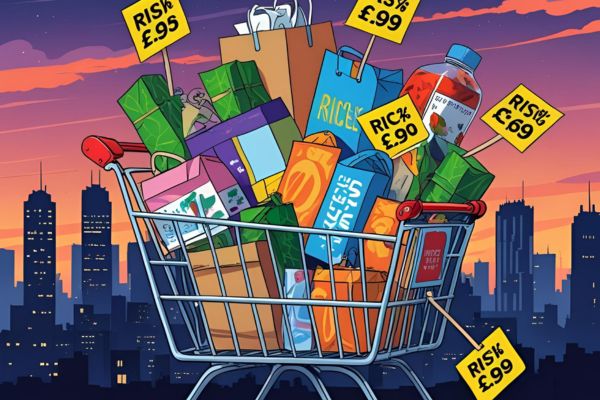Why More Michiganders Are Turning to Chapter 7 Bankruptcy in 2025
As the U.S. economy continues to grapple with the aftershocks of inflation, rising interest rates, and the winding down of pandemic-era relief, a growing number of Americans are seeking financial relief through Chapter 7 bankruptcy.
Recent data underscores this trend, with April 2025 witnessing a 16% increase in individual Chapter 7 filings compared to the same month in the previous year.
Understanding Chapter 7 Bankruptcy
Chapter 7 bankruptcy, often referred to as “liquidation bankruptcy,” allows individuals to discharge most unsecured debts, such as credit card balances, medical bills, and personal loans. In exchange, non-exempt assets may be sold to repay creditors. This form of bankruptcy is designed to provide a fresh start for those overwhelmed by debt.
Economic Factors Driving the Surge

Several interrelated economic factors are contributing to the uptick in Chapter 7 filings:
- High Interest Rates: The Federal Reserve’s efforts to curb inflation have led to elevated interest rates, increasing the cost of borrowing and making it more challenging for consumers to manage existing debts.
- Inflationary Pressures: Despite some stabilization, the lingering effects of inflation have eroded purchasing power, leading many to rely on credit to cover basic expenses.
- End of Pandemic Relief: The cessation of government stimulus programs and other relief measures has left some individuals without the financial support they previously relied upon, exacerbating financial strain.
- Housing Market Challenges: Rising mortgage rates and housing costs have increased monthly expenses for homeowners and renters alike, contributing to financial distress.
Regional Impacts: Michigan’s Experience
In Michigan, the effects are particularly pronounced. Data indicates a 15% increase in personal bankruptcy filings from 2023 to 2024, with Wayne County experiencing a staggering 28% rise . Factors such as adjustable-rate mortgages resetting at higher interest rates and increased reliance on high-interest credit cards have played significant roles in this regional surge.
Is Chapter 7 Right for You?
Determining whether Chapter 7 bankruptcy is the appropriate course of action depends on individual circumstances. Consider the following:
- Debt Load: If unsecured debts exceed your ability to repay them within a reasonable timeframe, Chapter 7 may offer relief.
- Income Level: Eligibility for Chapter 7 is subject to a means test, which assesses income relative to the median in your state.
- Asset Considerations: Understanding which assets are exempt from liquidation is crucial in evaluating the potential impact of filing.
Navigating the complexities of bankruptcy law requires informed decision-making. Consulting with a knowledgeable attorney can provide clarity on your options and help you chart a path toward financial stability.
Get A Free Consultation & Learn If Chapter 7 Is Right For You
Recent Posts
- What You Post Can Be Used Against You
- How a New Romantic Partner Can Affect Your Child Custody Case in Michigan
- Collaborative Divorce In Michigan: A Team Approach To Ending Your Marriage
- Postnuptial Agreements in Michigan: What You Need to Know in 2026
- Navigating Virtual Court Hearings in Michigan Family Law Cases
- Trauma-Informed Divorce In Michigan
- First Step for Filing for Divorce in Michigan
- Navigating Wayne County Friend of the Court
- Hidden Assets and Financial Infidelity in Divorce
- Child Custody Modifications
